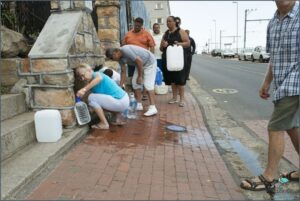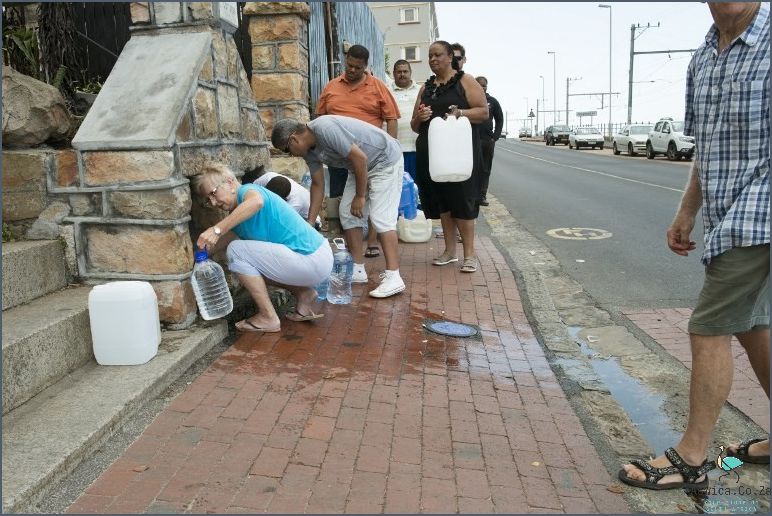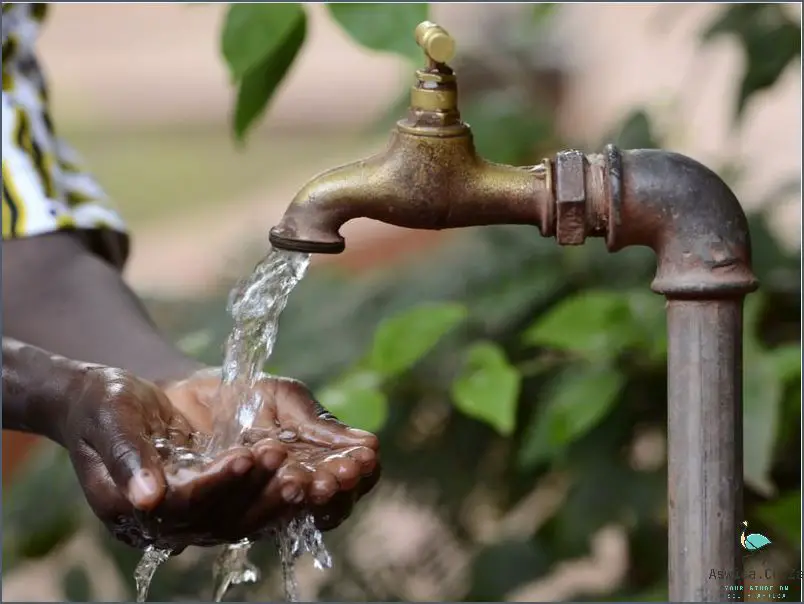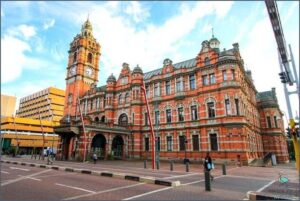
The water in Cape Town is not as clean as it should be. There are many places in the city where the water is not suitable for drinking, cooking, or washing. The water is also expensive.
Contents
Tap Water Cape Town
Tap water in Cape Town is classified as drinkable and safe to consume. The City of Cape Town’s Water and Sanitation Department ensures that the public water supply is monitored on a regular basis and complies with all national and international standards. The city works hard to ensure that the water is of the highest quality and is reliable, with attention paid to both taste and odour. The water is collected from mountain and coastal catchment areas, and is treated with a combination of chemical, physical and biological treatment processes to make it safe for drinking. The water is also tested for a range of things such as bacteria and other viruses, as well as other impurities. The water is then tested for colour, odour and taste before it is released into the public supply. All in all, tap water in Cape Town is very safe to drink and is of a good quality.
Quality of Tap Water in Cape Town
If you’re a resident of Cape Town, you’ve likely heard a lot of discussion surrounding the quality of tap water in the city. With a rapidly increasing population, an aging infrastructure, and unpredictable environmental factors, it’s no wonder that questions surrounding the safety of drinking tap water in Cape Town have arisen.
The good news is that tap water in Cape Town is generally considered safe to drink. According to the South African Department of Water and Sanitation, the tap water in Cape Town meets the World Health Organisation’s standards for drinking water quality. The department also monitors the water in the city on a regular basis to ensure that all of the necessary standards are being met.
In terms of taste, the quality of the tap water in Cape Town can vary from area to area, due to fluctuations in the water sources and treatment processes. In general, the tap water in Cape Town has a slightly metallic taste, which some people may find unpleasant. If this is the case, many residents opt to filter their tap water before drinking it, or simply purchase bottled water.

It is important to note, however, that although the tap water in Cape Town is safe to drink, it is not entirely clean. The tap water in Cape Town can contain trace amounts of pollutants, such as chlorine and fluoride, as well as small particles of dirt or other debris. This can lead to an unpleasant taste, or even cause health concerns for some individuals. As such, it is important to use a water filter if you choose to drink tap water in Cape Town.
In conclusion, the quality of tap water in Cape Town is generally safe to drink. However, it is important to bear in mind that the tap water in Cape Town may contain trace levels of pollutants and other materials, which could lead to an unpleasant taste or potential health risks. Therefore, it is advisable to use a water filter if you choose to drink tap water in Cape Town.
Health Effects of Tap Water in Cape Town
Tap water in Cape Town has long been a source of debate, and for good reason. There are numerous health effects associated with drinking the city’s water, and it is important to be aware of them in order to make an informed decision.
In the past, Cape Town’s tap water has been contaminated with a wide range of pollutants, including lead and other heavy metals. Lead is a particularly dangerous component of tap water, as it can cause neurological damage, including impaired development in children. Exposure to lead in infancy can have a lasting impact on their development, so it is important to be aware of the potential risks associated with drinking Cape Town’s tap water.
The city’s tap water also contains a variety of other contaminants, such as chlorine, fluoride, and pesticides. Chlorine is used to disinfect the water, but it can also cause eye, nose, and throat irritation, as well as skin and respiratory problems. Fluoride has also been linked to various health issues, including dental and skeletal fluorosis, thyroid problems, and cancer. Pesticides can also be found in Cape Town’s tap water, which can lead to an increased risk of certain types of cancer and other diseases.
Fortunately, there are ways to reduce the health impacts of drinking Cape Town’s tap water. Investing in a home filtration system can help to reduce the amount of contaminants in your drinking water, and it can also make it taste better. If you are unable to purchase a filtration system, boiling the water can help to remove some of the contaminants. Additionally, purchasing bottled or filtered water can help to ensure that you are drinking clean, safe water.
Overall, it is important to be aware of the potential health risks associated with drinking Cape Town’s tap water. While there are steps you can take to reduce the health impacts, it is always best to be aware and take the necessary precautions.

Advantages of Using Tap Water in Cape Town
Tap water in Cape Town has long been hailed as one of the world’s best sources of clean and safe drinking water. While most cities around the world have had to resort to costly bottled water, Cape Town has been fortunate enough to enjoy the bountiful benefits of their tap water. Here, we’ll explore some of the many advantages of using tap water in Cape Town.
First and foremost, tap water in Cape Town is incredibly safe to drink. The city’s water is regularly tested and monitored, ensuring that it meets all standards set by the World Health Organization. As such, you can be sure that your water is free from harmful bacteria and toxins, making it an ideal choice for drinking, cooking, and other household uses.
Using tap water in Cape Town is also much more cost-effective than buying bottled water. Not only does buying bottled water add up quickly, but it also creates unnecessary waste that is damaging to the environment. By using tap water instead, you can save money and help reduce your environmental footprint.
Tap water in Cape Town is also incredibly convenient. With the reliable infrastructure in place, you can rest assured that you’ll have access to a steady supply of clean and safe drinking water. This makes it an ideal choice for those in need of a quick and easy source of hydration.
Finally, tap water in Cape Town is incredibly healthy. Not only is the water free of harmful bacteria and toxins, but it also contains essential minerals and nutrients that can help promote healthy bodily function. By drinking tap water in Cape Town, you can be sure that you’re getting all the nutrition your body needs.
In short, there are many advantages to using tap water in Cape Town. Not only is it incredibly safe, cost-effective, and convenient, but it’s also incredibly healthy. By using tap water instead of bottled water, you can save money, reduce your environmental footprint, and ensure that you’re getting all the nutrition your body needs.
Conclusion
The conclusion of this article is that tap water in Cape Town is safe to drink. Although it may not be the most aesthetically pleasing water, it is free of harmful contaminants and is safe to drink.



